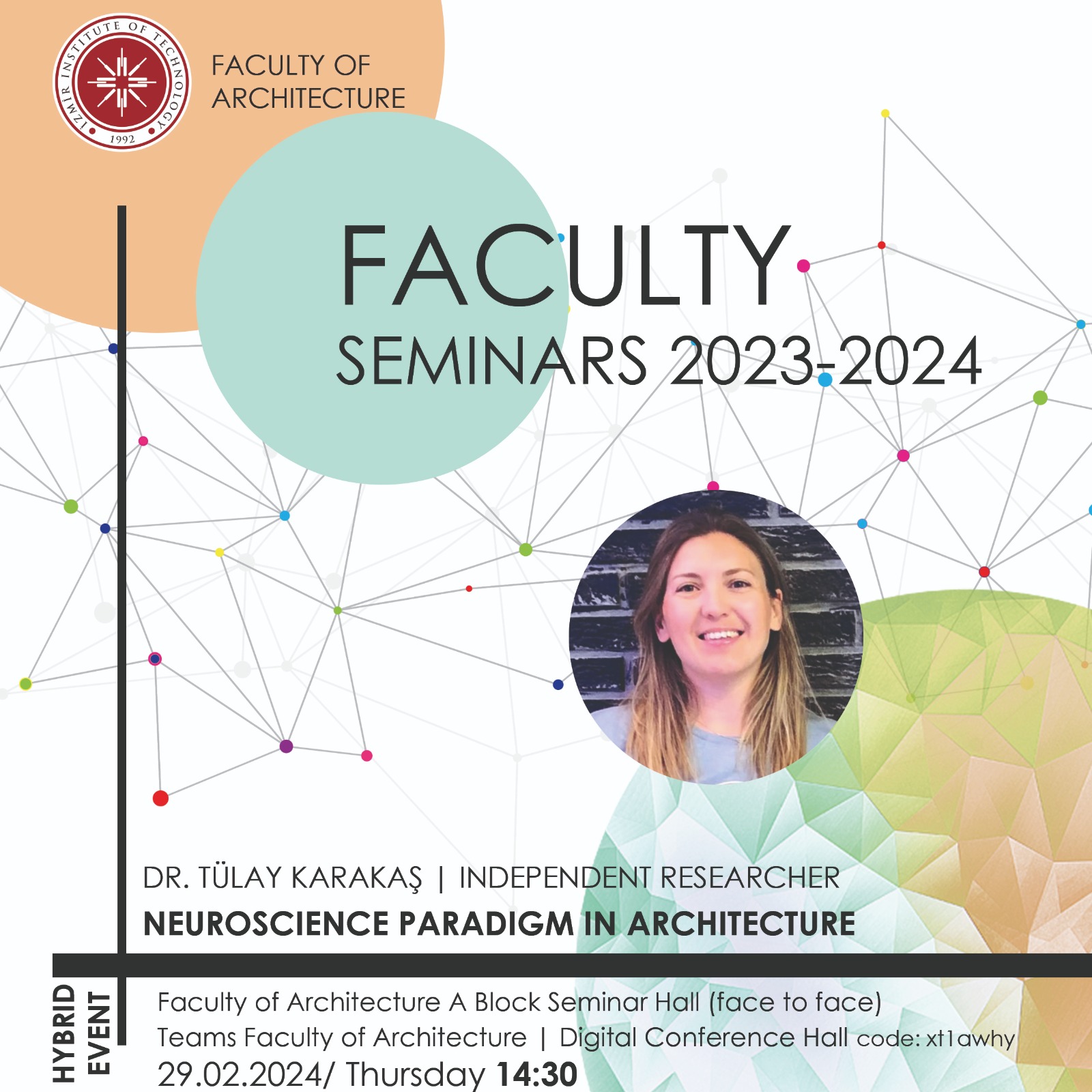Faculty Seminars 2023-2024
Dear IYTE students,
In the first event of the spring semester, which we will hold within the scope of the Faculty of Architecture Seminars, Dr. We are hosting Tülay Karakaş. We invite all IYTE students to our event, which will be held hybridly on Thursday, February 29, at 14:30, in Block A Seminar Hall and Teams Faculty of Architecture Digital Conference Hall, and wish them good luck.
Teams link:
https://teams.microsoft.com/l/meetup-join/19%3a032aeacdaa8b4b248a3503e723a9c5ab%40thread.tacv2/1707913184609?context=%7b%22Tid%22%3a%220f12a35c-45f6-462f-bfa1-0992ccd85ff7%22%2c%22Oid%22%3a%2228926c1d-ded7-48f7-a480-f98d339366a1%22%7d
Tülay Karakaş, Dr. Architecture/Design Researcher. She works on human-centered, research-based, evidence-based and science-based approaches in the field of architecture and environmental design for a good spatial experience. In particular, she is inspired by technical and technological advances in the field of neuroscience. She continues to work on the effect of the built environment on the human brain and the brain’s response to environmental stimuli. Bachelor’s degree from IZTECH, Department of Architecture (2010); Master’s degree from YTU, Architectural History and Theory (2014) and IUAV University of Venice, Neuroscience Applied to Architectural Design (2020); He holds a doctorate degree from ITU, Architectural Design (2023) program. Within the scope of the seminar, he will share the place of the relationship between architecture and neuroscience in current architectural studies and the research and design works he has produced in the field.
Tulay Karakas is an architectural researcher who graduated from universities in Izmir (BArch, IZTECH), Venice (MS, IUAV), and Istanbul (MS, YTU & PhD, ITU). She is passionate about human-centered, research-based, and science-informed approaches in architecture to create a better environmental experience. Inspired by neuroscience studies that indicate the possibility of wiring/rewiring our neurons through the environment. She holds a master’s and a doctoral degree in architecture and neuroscience, focusing on the built environment’s impact on the human brain, mind, and experience.

